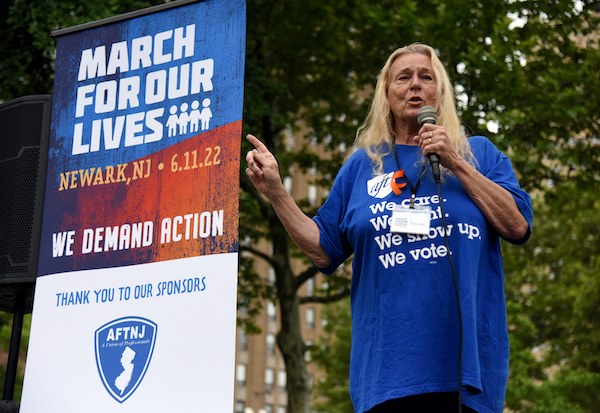Susan Snyder, Inquirer
[…]The decision didn’t sit well with David Hughes, a Rutgers anthropology professor and vice president of the faculty union.
“We’re feeling that this is a very unfair way to treat our institution,” he said. “We’re also feeling that it doesn’t make sense.”
He referred to the Times report that said the federal government appears to be including opposition to Zionism as anti-Semitic. Criticism of a state is legitimate, he said.
In 2016, the union backed Jasbir Puar, an associate professor of women’s and gender studies, after she faced death threats and calls for her firing for a speech at Vassar College in which she said the Israeli Defense Forces used cruel tactics against Palestinian civilians, according to an account in the student newspaper.
“We cannot operate as scholars and teachers, and students can’t learn, in a political environment wherein criticism of one state is considered illegitimate,” Hughes said.
Alyza Lewin, president of the Brandeis Center, which supports the federal legislation and use of the State Department’s definition of anti-Semitism, countered that criticism of Israel at times does constitute discrimination and noted that pro-Israel groups on the nation’s campuses have been singled out and excluded.
“You can criticize specific policies,” said Lewin, who applauded the Education Department’s decision to reopen the Rutgers case. “That’s legitimate. If you are going to suggest that Israel has no right to exist, that Israel in its creation is a racist endeavor, that Israel has no right to a Jewish state, that is anti-Semitic.”
Hughes, who noted that he is Jewish, acknowledged that anti-Semitism is increasing, but said it’s not coming from college campuses or professors.
“It’s coming from the people who marched on the campus in Charlottesville,” he said, referring to the white supremacist march at the University of Virginia last year that erupted in violence.
More >>





